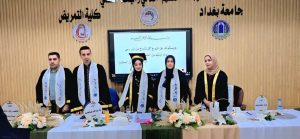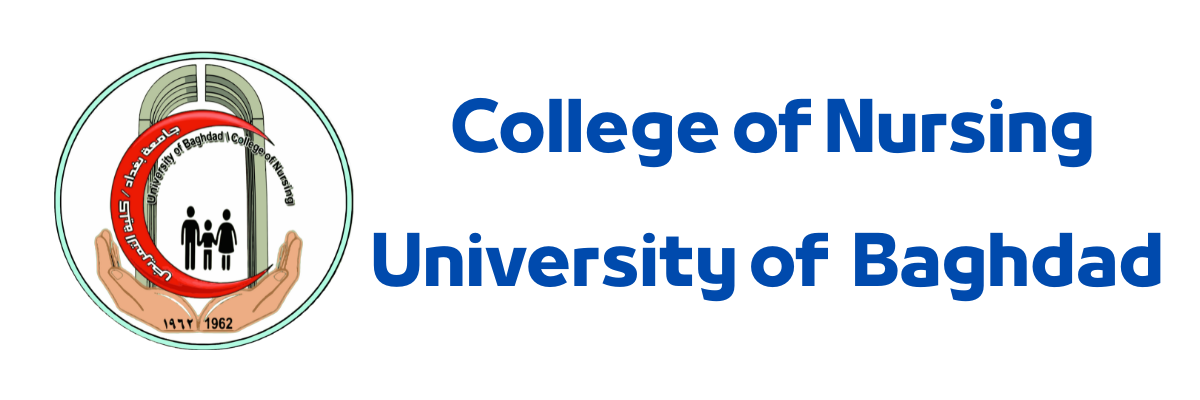The College of Nursing at the University of Baghdad discussed a master’s thesis entitled “The effect of saline and N-acetylcysteine on arterial blood gases and vital signs during tracheal suction of patients subject to mechanical ventilation”, by the researcher Ream Mutsher Sakhi under the supervision of Professor Dr. Tahseen Rajab Mohammed in the great hall of the college.
The study aimed to evaluate the effect of the use of salt solution and N-acetylcysteine on physiological indications and biomarkers of patients who rely on artificial respiration devices.
The results revealed that the use of N-acetylcysteine led to a marked improvement in oxygen levels and blood saturation, in addition to improved levels of bicarbonate. In light of this, the study recommended the selective use of N-acetylcysteine for cases with heavy secretions, and avoiding routine use of saline.
The study stressed the importance of continuous monitoring of blood gases and vital signs before and after the aspiration process to ensure patient safety, and also stressed the need to train nursing staff on standardized tracheal suction protocols. The researcher got a very good grade – high.
This study contributes directly to achieving the third goal of the Sustainable Development Goals: “Good health and well-being”. By developing evidence-based nursing practices in intensive care units, the thesis improves the quality of health care for patients in critical cases. The study also supports the fourth goal of “quality education” through its recommendation to train nursing staff, which enhances their professional efficiency and ensures the provision of the best possible care, which reflects positively on the health and safety of patients and contributes to building a more sustainable health system.










